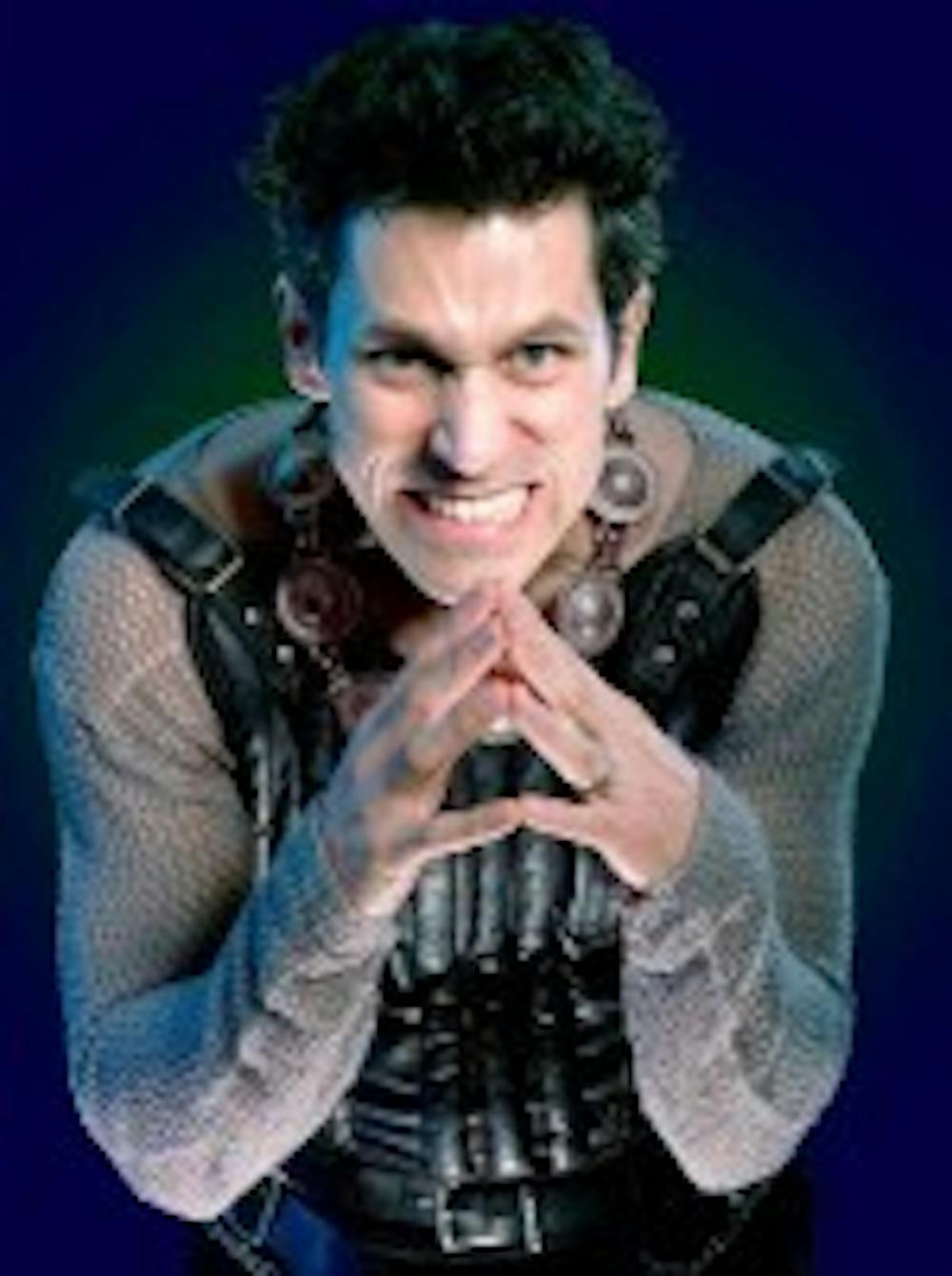The newly ascended King of Scotland wore a crown made out of a beer-drinking hat, and the queen's crown adorned her tall blue hair.
In a new interpretation of an old classic, a modern dysfunctional cartoon family is turned to royalty, with the familiar blue-haired raspy-voiced mother, and bald-headed, beer-bellied father as the main stars.
Hundreds of years after Shakespeare left his original mark on society, his works are still relevant in modern times. That was revealed Saturday night at the CFA in MacHomer, an interpretation of one of Shakespeare's most famous plays, Macbeth, as told by the characters of The Simpsons.
Rick Miller, who wrote and performs this one-man play, portrays and impersonates many Simpsons characters while integrating many pop culture references. He stays true to the plot of Macbeth and the character traits of each Simpsons character he portrays, even with the added comedic aspect.
In this adaptation, MacHomer has a hallucination of a bloody dagger murders as he murders King Duncan (Mr. Burns). Staying consistent with Homer's spacey and distracted character, he asks "Is this a dagger or pizza?"
As MacHomer tries to keep his newfound status as king, both hilarity and tragedy ensue.
Miller conceived the idea for his show after performing in a production of Macbeth 16 years ago. He created a 10-minute joke of The Simpsons meshing with Shakespeare for his play's cast party, and decided to call it "one dysfunctional family does another."
Miller realizes Shakespeare wasn't written for the current times, but his words continue to educate and entertain today's society, as does The Simpsons.
"I think [The Simpsons and Shakespeare] are less different than people think in the sense that both were reflecting society back to the times, so they were satirical," Miller said. "They also reached a huge cross-section of society; everybody knows The Simpsons, everybody back then knew Shakespeare."
Not only has his original joke evolved, but he also continuously changes his production and keeps the performance up to date while maintaining the "same stupid joke."
Throughout the performance, Miller preserved each Simpsons character's persona as if the audience were part of an actual episode, while also upholding the character's role in Macbeth. Miller included Bart forgetting his one line in the play, Homer continually being distracted by food, and Marge acting lovingly toward Homer.
Even though Miller performs a multitude of characters, it was difficult to tell that he was the only one on stage because of his large range of impersonations. He was energetic and passionate, living up to the entertainment that Shakespeare and The Simpsons provide. Through all his pop culture nuances and exaggerated character personas, an audience member who has no knowledge of Shakespeare would have still enjoyed the show and understood the jokes.
A large screen that adorned the stage displayed the continuous cartoon "episode" and introduced characters and settings as if the audience was within the cartoon. Even if the audience didn't know The Simpsons characters, each character came on the screen along with who he or she was portraying in Macbeth to keep the audience engaged in the plot.
However, at some points the story was hard to follow. The one man performance took away from the plot, and it was difficult to understand what was happening without actual action and vivid character interactions.
Although MacHomer is one adaptation of Macbeth, Barbara Bono, associate English professor, said many other versions of the play have been produced, including a 1967 Vietnam war-era adaptation called Macbird! and the '90s-era Men of Respect.
Bono also notes the irony of Macbeth, one of Shakespeare's largest tragedies, being comically adapted.
At the end of show, Miller performed an encore and sang Queen's "Bohemian Rhapsody" while impersonating the voices of different famous singers including Neil Diamond, Eminem, Bob Dylan, and Johnny Cash.
Through the combination of Shakespeare and The Simpsons, this insightful and evocative adaptation of Macbeth was more than just the some of its parts.
Email: arts@ubspectrum.com





